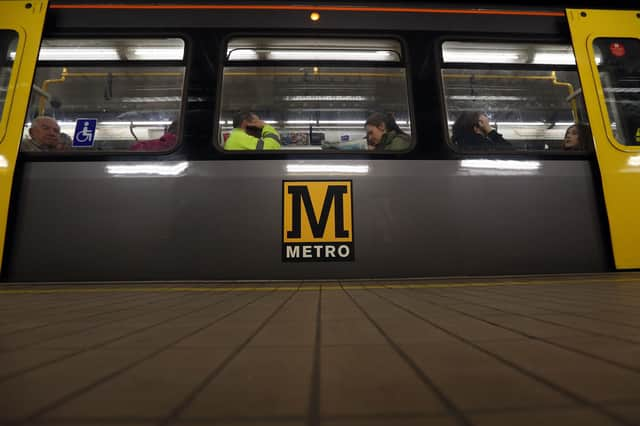Metro gets £8.5m Government boost as the service loses £500,000 a week


Department for Transport officials have confirmed two more rounds of emergency funding to help the struggling rail network survive the devastating impact of the Covid-19 pandemic, with its previous support package due to run out on Monday.
The Metro will be given up to £8.5 million to cover its losses for the next 12 weeks, taking the total it has received since the start of the pandemic to £33.2 million.
Advertisement
Hide AdAdvertisement
Hide AdIt will also get a share of a further funding pot worth up to £32.4 million running up to the end of March 2021, to be divided between local light rail services across the country subject to a government review “informed by local authorities’ plans to move networks onto a more financially sustainable footing”.
At the height of the Covid crisis, the Metro was losing almost £1 million per week because of a massive drop in ticket sales.
And while passenger numbers did recover gradually over the summer, the North East’s current local lockdown restrictions have caused another drop and bosses now report a weekly deficit of roughly £500,000.
There have been stark warnings this week of “dire straits” and cuts to train timetables, the Shields Ferry, bus routes, and concessionary fares if government help does not continue at its current level throughout the 2021/22 financial year.
Advertisement
Hide AdAdvertisement
Hide AdMetro operator Nexus has warned of a worst case scenario of a £30 million shortfall if emergency funding was to end and passenger numbers do not recover.
Director of Finance and Resources at Nexus, John Fenwick, said: “This extra financial support is vital so that we can continue providing Metro services at this time of crisis.
“Passenger numbers and fare revenue remain way below where they would have been, and we expect the recovery to be slow. The need for further funding after 11 January is almost certain and we continue to work with Government to ensure we obtain sufficient support to keep Metro services operating.
“The money that we have been allocated will replace fare and commercial revenue losses and go towards meeting our operating costs, ensuring that a key local transport network is being sustained while it faces the biggest challenges in its history.”
Advertisement
Hide AdAdvertisement
Hide AdGateshead Council leader Martin Gannon, Chair of the North East Joint Transport Committee, added: “While this is of course good news for the region, we need longer term certainty to avoid future cuts.”
Metro’s passenger numbers had been as low as 5% of pre-Covid levels during the national lockdown and currently stand at around 35% of normal rates.
Light Rail Minister Baroness Vere said: “Light rail serves as a vital link for communities in the North and Midlands – whether it’s to get to local shops, school or work, we know many people rely on these services every day.
“That’s why we’re continuing to fund services so that they can operate safely during the pandemic. Passengers across the North and Midlands will continue to have access to the services they need.”